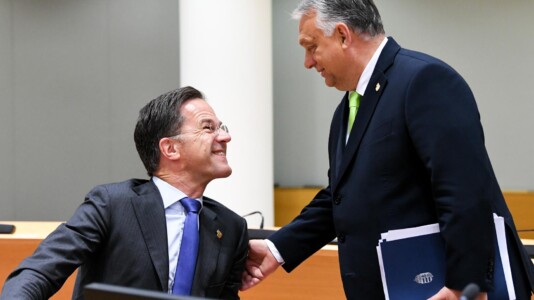The left-liberal coalition, heralded for steering Poland towards modernity following their electoral win, appears to have misjudged the priorities of the Polish populace.
Instead of embracing “morning after” pills and abortion on demand, the public’s definition of progress leans more towards tangible projects like the construction of the Central Communication Port (CPK).
The social movement supporting the CPK’s construction has infuriated the ruling coalition’s politicians, a reaction that seems puzzling at first glance. Ideally, by aligning with the aspirations of the majority of Poles, the left-liberal government could have bolstered its support and strengthened its position both domestically and internationally. However, the reality diverges significantly, with Prime Minister Donald Tusk’s team failing to apply for EU funding for railway connections integral to the CPK, local authorities requesting further environmental decisions, and continuous attempts by Civic Platform (PO) politicians to question the project’s validity. Today, it is highly probable that Tusk’s team will do everything in its power to prevent the port’s establishment.
The narrative suggests that the Tusk government is keen to halt this investment at all costs, potentially under German influence. This theory extends to other initiatives like the expansion of the Świnoujście container terminal, Intel factories, electric car battery production, and nuclear power plant constructions, which could impact the German economy either by reducing its revenues or by enhancing Polish competitiveness.
The Civic Platform also opposed other significant projects not directly affecting Germany, such as the Vistula Spit Canal and the Via Carpatia road project.
The issue isn’t just about the government wanting to safeguard Berlin’s interests. There is also a lack of capacity to execute large-scale projects. This incapacity was evident from the ambitious but ultimately delayed or failed projects such as the Euro 2012 highways, the nuclear power plant venture, and the delayed gas port essential for Poland’s energy independence.
For the left-liberal coalition, progress and modernity are not about an innovative economy or advanced technological developments but rather cultural and social changes. Such changes, they argue, are measures of progress because they free society from traditional constraints. Initially, opposition to the CPK project was framed as a critique of the previous administration’s grandiosity. However, this approach backfired as experts and even typically government-supportive journalists recognized the port’s potential for profitability and strategic importance, debunking the opposition’s arguments.
Prime Minister Tusk and his allies then resorted to their tested strategy of smearing, highlighting the funds spent on promoting the CPK project as mere “propaganda.” This tactic, intended to replace substantive debate with emotional outbursts, ignores the reality that such investments often benefit local communities involved in large projects through information campaigns and support for local institutions.
Yet, this narrative failed to gain traction, inadvertently showcasing Tusk and his government’s disconnect from the active segments of society demanding pro-development actions. This resulted in the spontaneous formation of the #YesForCPK association, rapidly gaining membership across diverse societal groups, united by aspirations and ambitions misunderstood by Tusk’s administration, ultimately highlighting the government’s focus on exacerbating conflicts rather than fostering progress.





